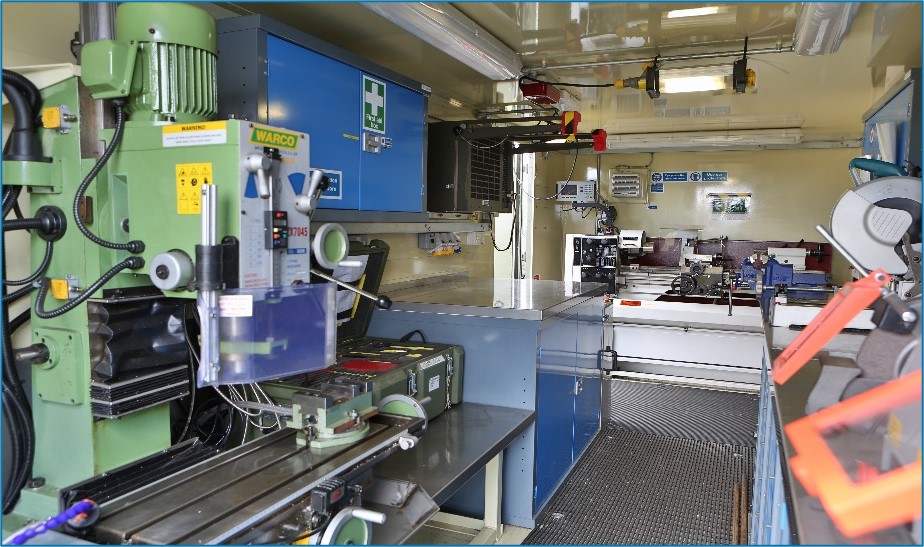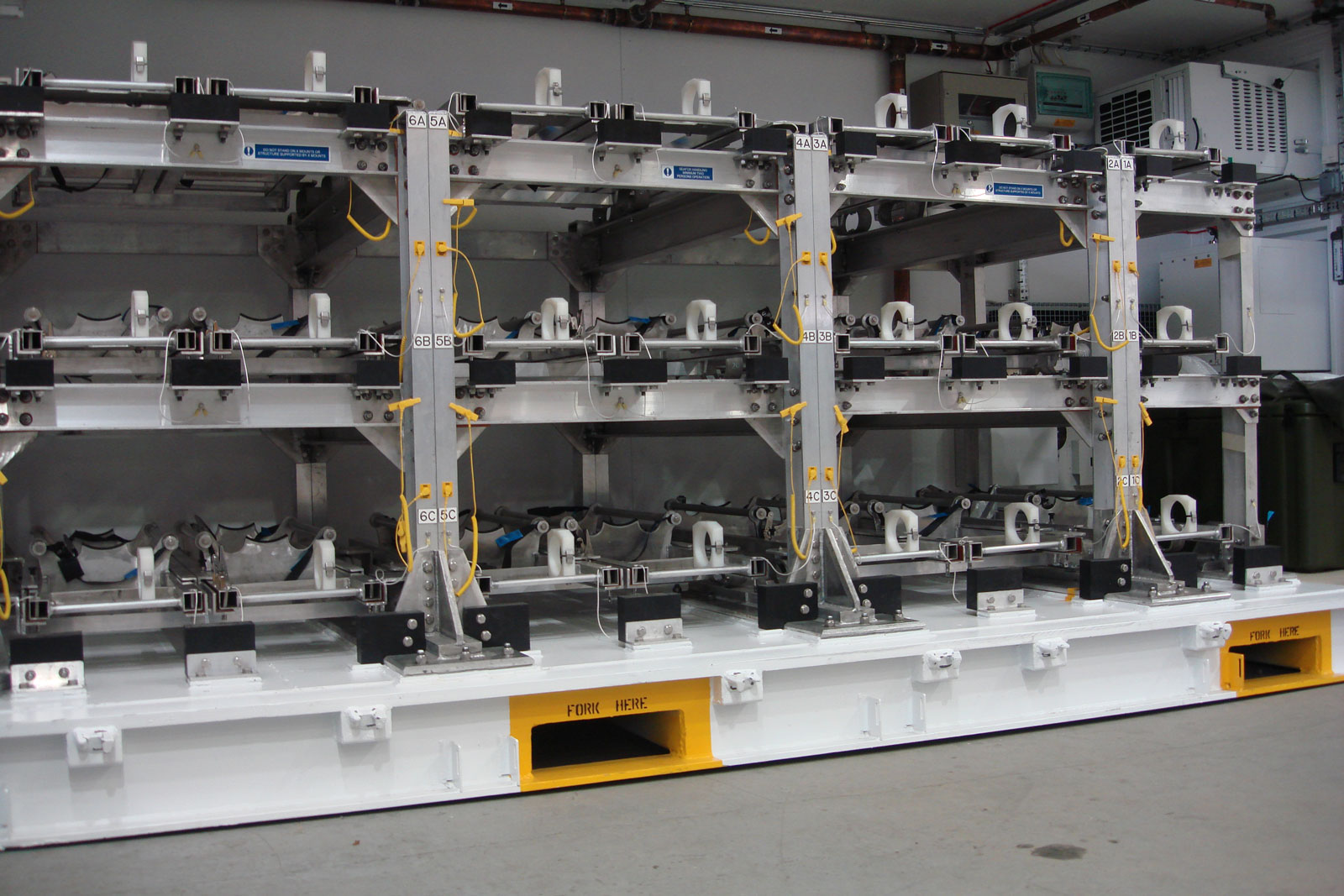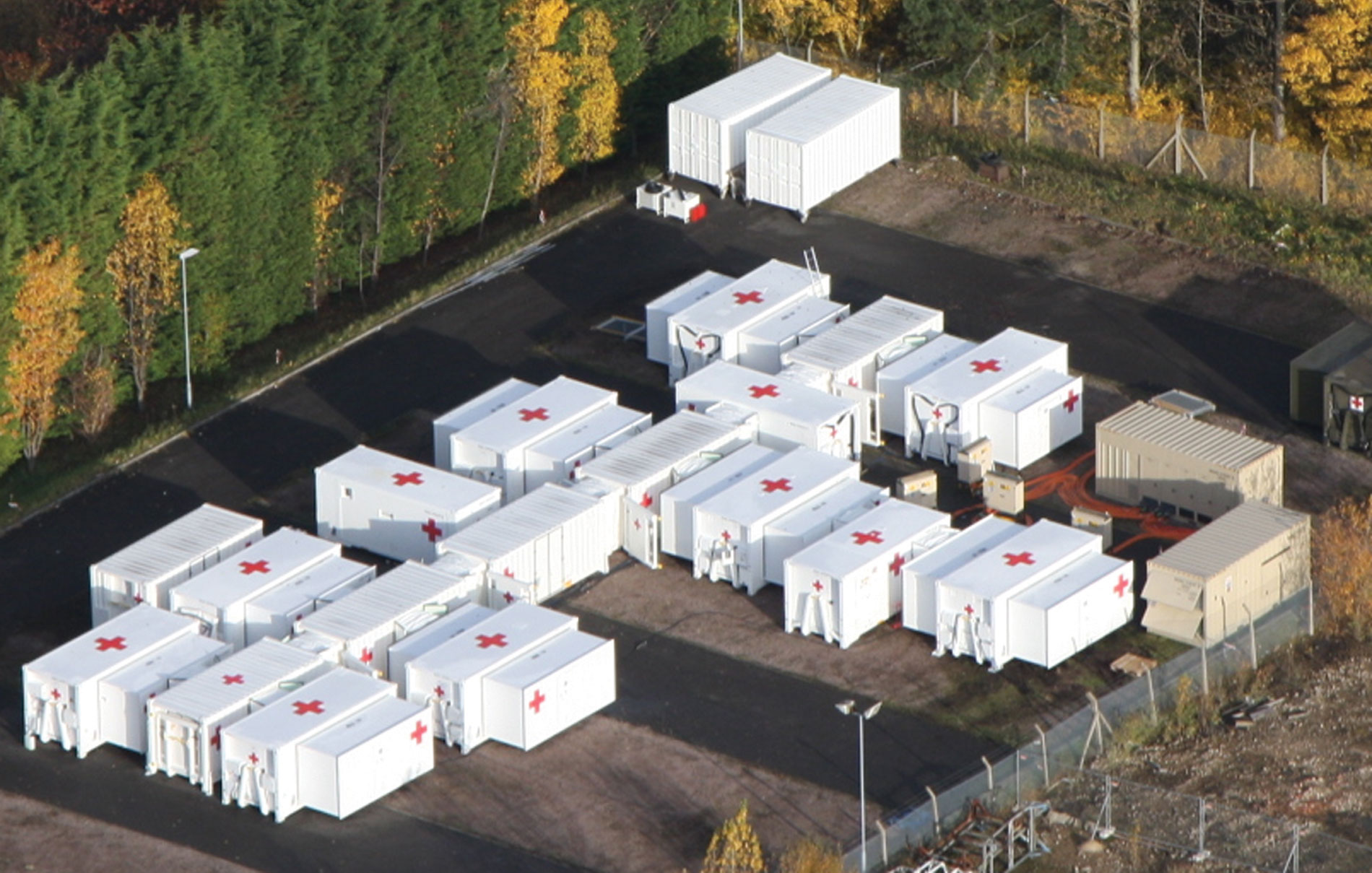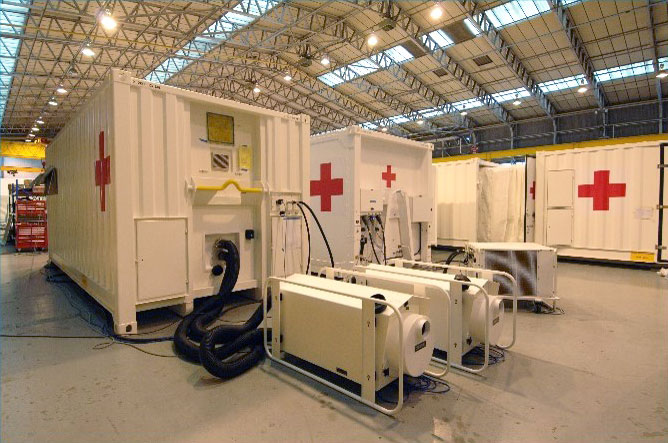
By Lee Doherty MBE, Director of Sales and Business Development, Marshall Land Systems
In the span of only 18 months since Russia’s illegal invasion of Ukraine, the gradually evolving military consensus around the “battlefield of the future” has been upended and the prospect of a high-intensity land war has made a very real return to Europe after many decades.
In this article I will outline why deployable operational infrastructure will prove key not only to supporting Ukraine’s near-term success, but also to ensuring our long-term collective readiness for the humanitarian and military crises of the future. I will examine this topic through the lens of several core needs: maintenance and repair; storage of ammunition and weapons; provision of medical care; and infrastructure and protection.
Maintenance and repair
As the Ukraine conflict settles into a tense and costly stalemate lasting considerably longer than most initially expected, the challenge of continuing extraordinarily intensive operations across a large front with limited materiel and resources becomes ever more daunting with every week that passes.
In short, the Ukraine conflict has revealed the extensive front-line impact of the prolonged downtime required for maintenance, repair and upgrade of platforms. Additionally, moving equipment back and forth to and from the front lines is problematic for two reasons: most obviously, it lengthens the period during which the equipment is out of use; secondly, it generates a much larger logistical footprint, potentially betraying sensitive information regarding the position and movement of assets and presenting openings for further attack.
Mobile deployable workshops, such as those developed and produced by Marshall Land Systems (MLS), are key to supporting armed forces in maintaining and repairing their front-line equipment rapidly and conveniently in situ, maximising uptime and reducing logistical footprint. A range of modular containerised workshops exist, collectively catering for a multitude of operational scenarios.

Deployable Machine Workshop
Our deployable machine workshops, for example, enable rapid repairs and production of small parts by armed forces engineers. They can be installed with lathes, milling machines, pillar drills, grinders, work benches, de-greasing sinks and a variety of tool storage options, and are fully operable – both when remaining on, or dismounted from, a support vehicle. Such Equipment Support (ES) solutions are configured where required to involve containerised solutions with larger tented structures to meet repair cover and parking with protection from the elements.
Meanwhile, our deployable avionic workshops enable vital maintenance and repair of aircraft components and systems in remote operational locations. These can have modular fitments that allow for Special to Type Test Equipment (STTE) in clear air, sterile environments.
In terms of supporting combat forces especially in the land environment, the container portfolio is continuing to expand for power-hungry but also heavily armoured forces. Deployable battery charging units, portable tyre repair facilities, and power pack repair facilities for tanks and Armoured Fighting Vehicles (AFV) all need to be readily available and keep pace with high-manoeuvre forces, but also need to be hidden and camouflaged in operational environments characterized by protracted stalemate.
Storage of ammunition and weapons
The ongoing conflict in Ukraine has put considerable pressure on ammunition supply chains, depleting global stockpiles and causing reactive production ramp-ups.
As we adapt to what the Royal United Services Institute has dubbed the “return of industrialised warfare,” the focus will begin to shift from production capacity to supply chain logistics. Given the increasing supply of ammunition and weaponry being transported into and through Ukraine to the front lines, safe transportation and storage in the right environments is now of paramount importance.
MLS has designed, manufactured and maintained a range of configurations offering tailored secure DOI with containers specialised for the storage at home bases and transportation of ammunition and explosives under controlled environmental conditions to the front line. Our solutions can be deployed at sea or on land, increasing agility, usability and survivability.

Deployable Weapon Storage
We offer a range of solutions in this area, including ammunition and explosives storage, weapons storage, weapons platforms and bespoke transportation racking, and explosive suppressant foam container.
Designed to store high profile ammunition and explosives, our containers are subject to compliance under Ordnance, Munitions and Explosives (OME) regulations and are designed with critical hazards in mind: security, fire safety, electrostatic and electromagnetic fields and environmental conditions. High specification materials, resistant to extreme temperatures and humidity, along with fully integrated air conditioning systems and heaters, are used to ensure ideal storage conditions for ammunition and explosives.
Provision of medical care
Since invading Ukraine in February 2022, Russia’s playbook has targeted the country’s armed forces and civilian populace alike. Likewise, relentless airstrikes on medical facilities and power infrastructure have severely impacted the ability of Ukrainian and international volunteer medical services to deliver a consistent standard of acute or longer-term care.
My colleagues and I have personally heard from Ukrainian soldiers who have been injured serving on the front line, attesting to the value of care immediately after an attack in trenches or in urban areas.

Deployable Field Hospital
For over 60 years, MLS has supplied rapidly deployable medical systems and infrastructure designed specifically for challenging scenarios such as these. Fully transportable by road, rail, sea and air, our deployable field hospitals offer complete Role 1 & Role 2 medical infrastructure coverage, and have been designed specifically for rapid deployment by specialist and non-specialist personnel.
Due to their NATO-standard modular design, our deployable field hospitals allow for simple extension and addition of operating theatres, recovery/intensive care areas, radiology & CT scanning, offices and receptions, laboratories, pharmacies, sterilisation, changing & shower/ablutions facilities, and morgue systems. Increasingly advanced adaptable clinical configurations are possible, all underpinned by the need for rapid mobility.
Infrastructure and protection
As highlighted above, the invasion of Ukraine has taken a toll extending well beyond the country’s military; it has also caused an unprecedented humanitarian crisis.
Additionally, the mass displacement of large civilian groups from contested zones on the front lines has meant that established infrastructure is simply not enough in areas that are temporarily housing larger-than-usual populations.
Once again, deployable operational infrastructure can serve as an effective source of support - whether for displaced civilian populations or for armed forces near the front lines. To that end, many individuals directly or indirectly involved in Ukraine’s military and civilian response to Russia’s invasion have underscored the urgent demand for highly mobile, safe accommodation and secure communications in critical situations offering environmental protection.

Camp Infrastructure
MLS has 70 years of experience in designing and manufacturing a range of shelter configurations to meet the most demanding operational requirements.
We design, manufacture, integrate and support essential camp infrastructure ancillaries to sustain and protect complex operational infrastructure, including power generation and distribution, chemical, biological, radiological and nuclear (CBRN) protection, nuclear and electromagnetic pulse (EMP) protection, ballistic protection, water distribution and treatment, waste treatment, incineration, and fuel systems.
All of these subsystems allow for the transportation and rapid deployment of military or civilian purposes camps with self-sustaining infrastructure and ample protection. These camps can be constructed in modular fashion to meet evolving needs - adding any required capabilities, ranging from medical care to workshops, laboratories, medical facilities, accommodation, offices, and more.
In Conclusion
Deployable operational infrastructure can provide a range of highly mobile and versatile solutions to overcome the many logistical and operational hardships currently facing Ukraine’s armed forces and civilian population.
The conflict in Ukraine is not entirely unique. Indeed, it has taught NATO to relearn lessons that had had dissipated from doctrine and handbooks. Equally, the peace dividend of just-in-time logistics has been found wanting when faced with full-scale combat and not side-show engagements that have not been tested owing to asymmetric warfare. Recovering the past will serve us well into the future, and has applicability to the challenges seen by COVID, disaster relief and, in all probability, climate change.